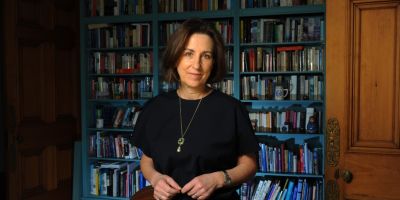Journalists and other non-combatants need better protection in conflict zones, argues Faculty Professor

Journalists and other non-combatants such as aid workers need better protection in war zones, a Professor at the University of Leeds’ School of Media has argued
Journalists and other non-combatants such as aid workers need better protection in war zones, a Professor at the University of Leeds’ School of Media and Communication has argued during a talk for the Association of European Journalists (AEJ) on the Israel-Gaza conflict.
The International Federation of journalists has estimated that since the Israel-Gaza war began in October 2023, the death toll of civilians has included “at least 109 journalists and media workers, a mortality rate of over ten per cent – dramatically higher than any other occupational group”.
At the AEJ event held at Regent University on 13 June, Professor Chris Paterson joined Dr Julie Norman (University College London) in examining the rival national narratives, political messaging, and information controls which shape public understanding of the war, as well as the challenges faced by journalists in reporting on the conflict due to restrictions and threats from both sides.
We must ask now if civilian organisations seeking to work in conflict zones need better protection
The AEJ invited Professor Paterson to speak at the event following his article for the Conversation exploring ‘deconfliction’ – the arrangement by which non-combatants try to ensure their safety by informing warring parties of their movements to prevent themselves becoming targets – and why this has failed to halt the deaths of journalists and aid workers in Gaza and other warzones.
“We heard about deconfliction in the wake of the recent killing of seven humanitarian workers by the Israeli military,” Professor Paterson said. “The organisation for which they were working, World Central Kitchen (WCK), insisted it had informed the Israel Defense Forces (IDF) of its workers’ route as they collected aid supplies to deliver to depots for distribution. Tragically, due to what Israel has called a “grave mistake”, the convoy was hit and the seven humanitarian workers were killed in an airstrike that targeted vehicles bearing the WCK logo.
“We must ask now if civilian organisations seeking to work in conflict zones need better protection than these ad-hoc deconfliction agreements – perhaps in the form of automatic sanction of combatants who break international humanitarian law.”
Chris Paterson is Professor of Global Communication at the University of Leeds’ School of Media. He has been researching the safety of journalists since the early 2000s, when their deaths caused by the US military in Iraq and Afghanistan became a regular occurrence. His ground-breaking book War Reporters Under Threat: The United States and Media Freedom (2014) investigated the violence experienced by war reporters during military actions by the United States government and some of its close allies, including Israel.




